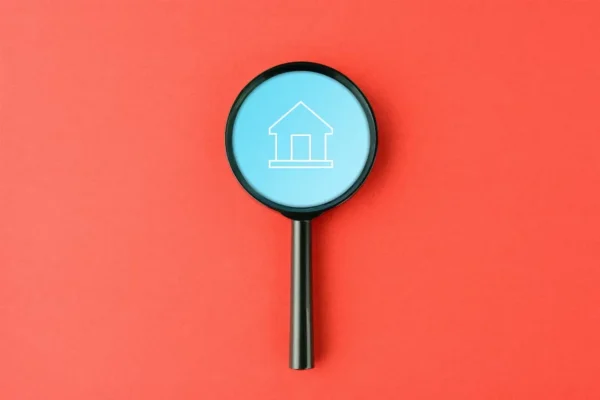
How to Fix Your Credit to Buy a House

If you’re looking to buy a home, you’ve probably been keeping an eye on interest rates. Currently, mortgage loan interest rates are the highest they’ve been in over a decade. Given that 78% of home purchases were financed in 2022, those interest rates have an immediate impact on the majority of home buyers.
After all, one of the key determinants of your monthly mortgage payment—along with the loan amount—is the interest rate on your home loan. The difference of even a few tenths of a point can save you thousands of dollars over the life of your loan. But how can you get the best interest rate possible from mortgage lenders in the current market? To be approved for a home loan at the lowest possible interest rate, a high credit score is essential.
If your credit score isn’t the best right now and you’re wondering how to fix your credit to buy a house, there’s hope. Improving your credit score isn’t rocket science, although it does take some time and effort on your part. Here, we’ll review what exactly a credit score is, why your credit score matters, what goes into determining your credit score, as well as how to fix your credit to buy a house so you can afford the best possible home for your budget—and enjoy it to the fullest once you move in.
From Mortgages to Home Equity Loans
Our local, award-winning lending team is ready to help you begin today.
What Is a Credit Score?
Simply put, a credit score is a three-digit number that tells potential lenders how you have handled your credit in the past. The most commonly used credit score is graded on the FICO scale, which is a rating mechanism that assigns a score between 300 and 850 to private consumers.
How Is Your Credit Score Determined?
Your credit score is not a number that the credit bureaus assign out of thin air. It is based on certain criteria that have been deemed to provide a good overall picture of your ability to pay back your debts and manage money well. The five criteria are listed below, along with the percent each contributes to your overall FICO score:
- Payment history (35%): Your history of making on-time payments is the largest single factor when determining your credit score.
- Credit utilization (30%): This is the ratio of the percentage of available credit you’re using versus the total amount available to you. It’s best to keep your credit use to just 30% of available credit. For instance, if you have a total credit limit of $30,000, you should only have $10,000 worth of debt at any given time.
- Length of credit history (15%): This is how long you’ve been using credit. The longer your credit history, the easier it is for lenders to see if you pay your bills on time.
- Type of credit (10%): Having a variety of credit accounts in the form of student loans, personal loans, auto loans, and credit cards lets lenders see that you can manage credit responsibly.
- New credit/inquiries (10%): If you open a new line of credit — or even multiple lines — in a short time-frame it can drastically lower your score.
Why Does Your Credit Score Matter?
Every time a lender loans a consumer money, they’re taking a risk that they might not get their money back in full. Your credit score lets those potential lenders know just what level of risk they’re taking on with you as a borrower. If you have a high credit score, it shows that you have a history of paying your debts on time and in full. As such, lenders will charge you less to borrow their money in the form of lower interest rates — which could save you thousands of dollars in interest over the course of your mortgage loan.
Steps to Improve Your Credit Score
As you can see, your credit score can have a big impact not just on your financial life, but your home life as well. If you want to fix your credit to buy a house, there are a few things you should do, and a few you should avoid. Here are a few tips to raise your credit score and, in turn, lower the interest rate lenders offer you on a home loan:
Do
- Check for errors on your credit report. Keep an eye out for accounts that don’t belong to you, personal information errors, paid accounts that are still listed as unpaid, and any negative items that expired but are still on your report. Dispute any errors to ensure your credit score is as high as possible.
- Pay all your bills on time. Payment history is the most influential factor when determining your credit score. If you don’t already, be sure to pay all your bills on time and in full for a few months before you apply for a home loan.
- Pay off your debt. If you have outstanding credit card balances, paying off as much as you can before you apply for a mortgage loan will lower your credit utilization ratio, and increase your credit score.
- Increase your credit lines. By increasing your credit limit on current credit cards, you can lower your credit utilization ratio. But a warning: it should only be done if you can manage higher credit limits responsibly.
Don’t
- Apply for new credit accounts. For a few months—if not years—before applying for a home loan, avoid applying for new credit cards or loans. Such credit inquiries can have an immediate negative impact on your credit score.
- Make a major purchase. A large purchase before applying for a home loan can increase your credit utilization ratio, which will decrease your credit score. Taking on more debt can also raise your debt-to-income ratio (DTI)—a key factor for lenders when determining your mortgage terms. DTI is calculated by dividing your monthly debt payments by your gross monthly income. For example, if you earn $4,000 per month before taxes and pay $1,000 a month in debt payments, your DTI would be 25%. Lenders look for a low DTI because it means your monthly income won’t be earmarked for other debtors, and you will be more likely to pay your mortgage bill every month.
Reap the Rewards
The homebuying process is just that: a process. After taking steps to improve your credit score, it may take a few months for you to see improvements. But be patient. Improving your credit score is one of the smartest moves you can make before buying a home, and your effort now can save you thousands over the course of the loan, setting you up for a secure financial future.
Learn About Amplify Mortgage Loan Options
Ready to start the process? Talk to an Amplify Mortgage Loan Originator to start your homeownership journey!


